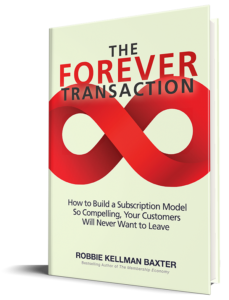A lot of companies I work with fit neither into B2B nor B2C. Unlike traditional B2B companies, they aren't selling to specific titles who are acting on behalf of the enterprise. Unlike traditional B2C companies, they aren't selling to consumers acting purely in personal interest. What I have come to call B2BC includes businesses in which the company sells to individuals, who are making the purchase solely to improve their professional effectiveness or performance.
Sometimes B2BC buyers can get reimbursed for their purchases, but just as often, the cost comes out of their own pocket, ostensibly in hopes that the investment will further their career. Examples of B2BC include web-based contact management solutions, like Plaxo, LinkedIn and data-aggregator and updater Jigsaw.
I have recently been learning more about Jigsaw, a cool company that allows members to input business contact info into Jigsaw's massive database, in exchange for access to data on other people. Jigsaw has its own economy–a points system that rewards both the initial data dump by new members as well as data updating and cleaning activities. Apparently, in earlier days Jigsaw paid people to enter information–but they quickly updated their model to reflect more intrinsic rewards–user providing good data results in user getting to access more good data. I love that the rewards are intrinsic and that this marketplace provides unique value to multiple audiences (individual sales guys and recruiters as well as major enterprises)
Many of these B2BC models have the attributes of Beemium, a concept I recently covered, including a free (or low-priced) offering for individuals that creates massive value for corporations, who are willing to pay. I like this approach, as it effectively harnesses consumer activity into data and access that businesses value. Effective Beemium businesses typically require a multi-stage approach, starting with consumer and business-consumer outreach, and then branching out with a different offering for the enterprise. In some cases, the initial consumers seed target enterprises with raving fans (like Salesforce.com and Webex, for example) but many have totally different offerings for the enterprise. In either case, B2BC businesses are particularly attractive because they often aggregate certain categories of business professional, who are often hard to reach (like physicians at Sermo, or Small Business Owners at Intuit)
I'll continue to seek out and feature B2BC companies and write about them here–if you have one you'd like covered–just let me know and I'll try to write about it


